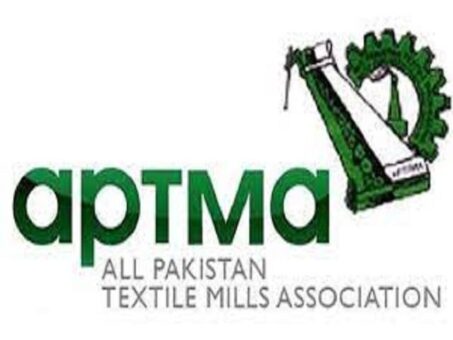Karachi, February 14, 2024 – The All Pakistan Textile Mills Association (APTMA) issued a stern warning to the government on Wednesday, cautioning that over 50 percent of firms in the textile and apparel sector are at high risk of shutting down in the coming weeks unless urgent corrective measures are taken.
The dire prediction, outlined in a letter addressed to Federal Commerce Minister Dr. Gohar Ejaz, underscores the urgent need for intervention to avert widespread unemployment and potential social unrest.
The APTMA highlighted the continuous erosion of Pakistan’s international competitiveness in the textile and apparel exports due to soaring energy prices. The association emphasized that energy prices in Pakistan are, on average, over twice as high as those in competing countries, posing a significant threat to the sustainability of the sector.
Currently, electricity prices for industrial consumers stand at 16.7 cents/kWh, while the price of gas is slated to increase to Rs 2,950/MMBtu from the current Rs 2,200/MMBtu and Rs 852/MMBtu just over a year ago. APTMA contends that at these rates, production is no longer financially feasible, leading to stagnant exports and a loss of market share to regional economies like Bangladesh, India, and Vietnam, which benefit from significantly lower energy tariffs.
The textile body expressed concern about the country’s weak macroeconomic outlook, citing persistent high inflation, vulnerability in the external sector, and a lack of improvement in foreign exchange earnings. APTMA argues that the economy is trapped in an unsustainable situation, affecting employment, poverty levels, power sector revenue, and the government’s fiscal position.
Pointing to a decline in industrial power consumption since at least Q2FY24, the APTMA stated that the industrial contribution to fixed power sector costs has decreased. This decline has led to an increase in power tariffs across all consumer categories, contributing to a vicious cycle of declining consumption and rising tariffs with no apparent end in sight.
Moreover, the association asserted that the industry can no longer bear the burden of subsidizing nonproductive sectors through cross subsidies in energy tariffs. These subsidies distort the economic landscape and significantly impede the international competitiveness of Pakistan’s manufacturing sector.
In response to the critical situation, a delegation of industry leaders from the textiles and apparel sector urgently requested a meeting with the finance minister. The goal of the meeting is to convey the precarious position of the industry and articulate the potential ramifications on the entire economy in the coming months. The outcome of this dialogue will be closely monitored as stakeholders and the broader public await the government’s response to avert a looming crisis in the vital textile sector.
